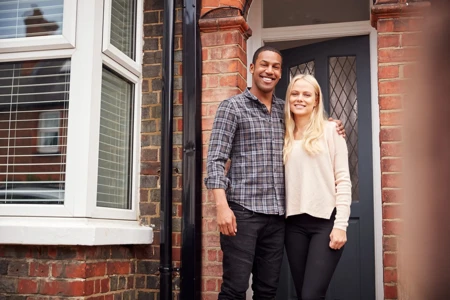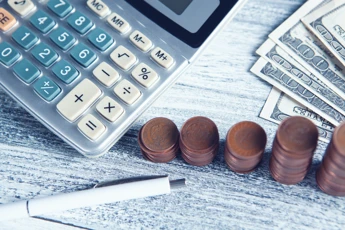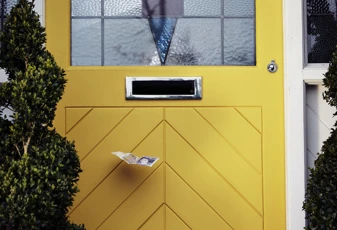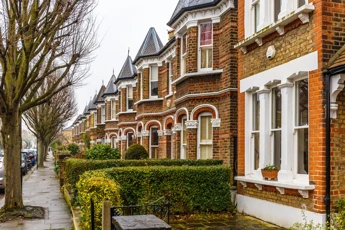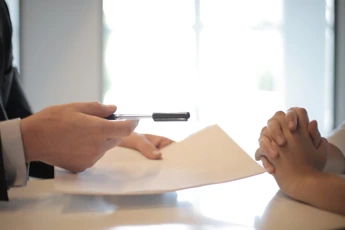One of the key parts of buying a home is the deposit. A mortgage deposit is the initial amount of money you pay when buying a house. This upfront payment is important as it shows lenders that you’re committed and capable of handling the costs of the loan. The larger your deposit, the less you’ll need to borrow.
What size should my deposit be?
The size of the deposit depends on the value of the home you want to buy. Generally, you need at least 5% of the total property value, as this is the minimum amount most lenders will accept.
For example, if the house you’re eyeing is worth £300,00, your deposit should be at least £15,000.
Calculating your borrowing power
The amount you can borrow is influenced by your deposit size. Other factors like your income, expenses, credit score, and whether you’re applying with someone else also play a role. Lenders use this information to determine how much you can comfortably afford to repay.
Options for small deposits
If you're struggling to save a large deposit, there are options to help you get started on your homeownership journey sooner. One option is the lifetime ISA, where the government provides a 25% bonus on your savings, up to £1,000 per year. Another option is the 95% mortgage, which is provided by most lenders to assist those with a 5% deposit in purchasing a home.
Getting a mortgage without a deposit
While it's typically advisable to have a deposit, there are alternatives. A guarantor mortgage lets a family member or friend help secure the mortgage using their own property or savings. Government schemes like the Right to Buy can also aid you in buying a home without a traditional deposit.
Deposits for Shared Ownership and buy-to-let mortgages
If you're considering shared ownership or a buy-to-let mortgage, you'll still need a deposit. The amount may vary based on the percentage of ownership or property value. For shared ownership, the deposit is smaller if you own a smaller portion of the property. Buy-to-let mortgages usually require a higher deposit, around 25% of the property's value.
Start the conversation
If you’re unsure about how your deposit affects your mortgage eligibility, reach out to one of our expert mortgage advisers. They’ll analyse your financial situation and help you find the right mortgage option for your needs and take you through the process of applying.
Get in touch today to find out more!
Want to talk mortgages?
Get real advice from real people. From mortgages to protection insurance, we’re here for you. Talk to us today and let’s work together to find a mortgage that’s right for you.
Important information
Your home may be repossessed if you do not keep up repayments on your mortgage. There may be a fee for mortgage advice. The actual amount you pay will depend upon your circumstances. The fee is up to 1%, but a typical fee is £295. Fee free advice for all new build purchases.
Read our other articles
Top ten money-saving tips
Saving money makes opening a savings account a bit simpler and helps your money go further.
Shared Ownership scheme uncovered
Fancy owning your home, but making a more modest deposit?
How to raise your credit rating
Your credit score has a significant influence on how you get access to credit lines, such as loans, credit cards, and mortgages.
What you should know about 95% mortgages
If you have a small deposit saved up, you may be able to qualify for a 95% mortgage.
What happens to your property after your divorce? FAQs
Following a divorce, many couples have numerous questions about their property, and what will happen now that they are breaking up.
What your mortgage adviser needs for your appointment
The more prepared you are for your mortgage appointment, the better we’ll be able to assist you.
Understanding mortgage affordability assessments
When applying for a mortgage, you’ll need to undergo an affordability assessment to ensure you can meet your monthly repayments with ease.
Everything you need to know about your mortgage appointment
Are you stepping into the world of homebuying for the first time? Maybe it’s been a while since you last spoke to an adviser, and you aren’t sure what to expect? We’ve got you covered…

